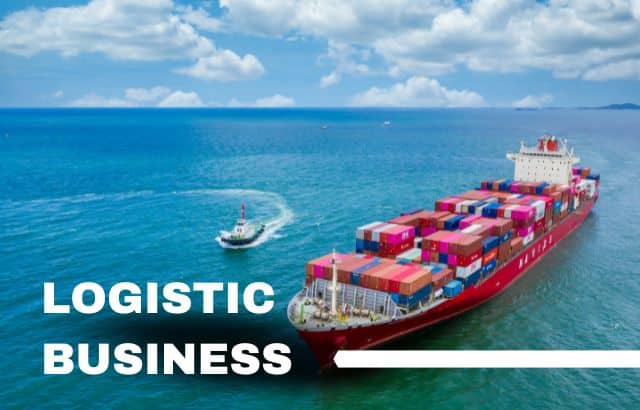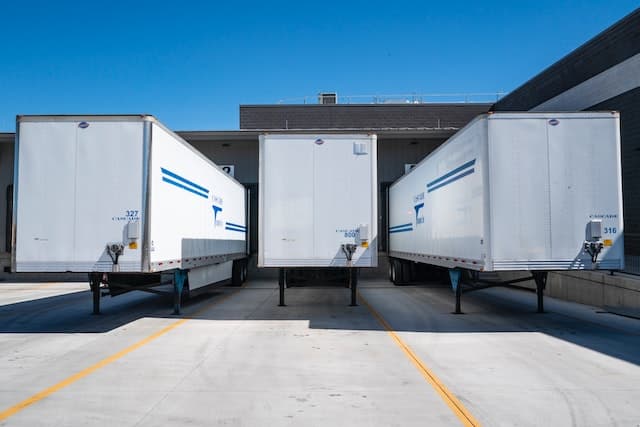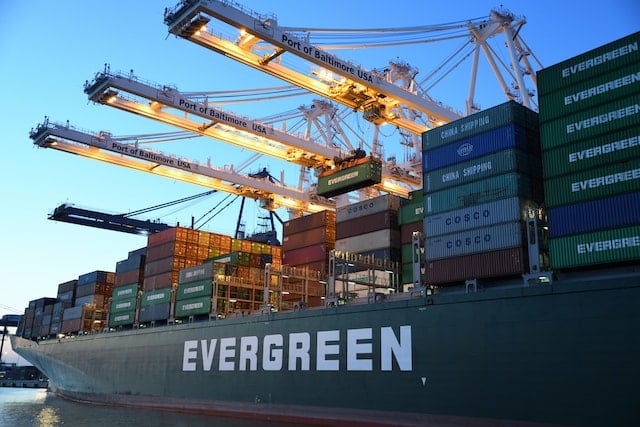Hirav Shah is a renowned expert in the logistics industry who has provided valuable guidance and strategies for starting a successful logistic business. With his comprehensive guide, individuals can learn the step-by-step process of establishing a profitable logistics business, including industry insights, operational setup, and client attraction. Whether you are a newcomer or seeking to expand your existing business, Hirav Shah’s expertise will help you overcome challenges and increase your chances of success in the logistics industry.
Table of Contents
Research the Market and Identify a Niche.
Before starting a logistic business, it is crucial to research the market and identify a niche that has potential for profitability. This involves understanding the current trends and demands in the logistics industry, as well as analyzing the competition. By conducting thorough market research, you can identify gaps in the market and areas where you can differentiate your business. This will help you tailor your services to meet the specific needs of your target customers and position your business as a unique and valuable solution in the market. Additionally, researching the market will also help you determine the pricing strategies and marketing tactics that will be most effective in attracting clients and generating revenue.
Develop a Business Plan and Secure Funding.
Once you have identified your niche and conducted market research, the next step is to develop a comprehensive business plan. This plan will outline your goals, strategies, and financial projections for your logistic business. It will serve as a roadmap for your business and help you stay focused and organized.
In your business plan, you should include details about your target market, competition analysis, pricing strategies, marketing tactics, operational processes, and financial projections. This will help you demonstrate to potential investors or lenders that you have a clear vision for your business and a solid plan for success.
Securing funding is another crucial step in starting a profitable logistic business. Depending on the scale of your business, you may need to secure funding for equipment, vehicles, warehouse space, and other operational expenses. You can explore options such as loans from banks or financial institutions, seeking investment from venture capitalists or angel investors, or even crowdfunding.
Having a well-developed business plan will greatly increase your chances of securing funding, as it shows potential investors or lenders that you have done your research and have a solid plan for profitability.
By developing a comprehensive business plan and securing funding, you will be setting a strong foundation for your logistic business and increasing your chances of success in the competitive industry.
Obtain the Necessary Licenses and Permits.
Before you can officially start your logistic business, it is important to obtain the necessary licenses and permits. The specific licenses and permits required may vary depending on your location and the nature of your business.
Some common licenses and permits that you may need to obtain include a business license, transportation license, and permits for operating a warehouse or storage facility. It is important to research the requirements in your area and ensure that you comply with all regulations.
Obtaining the necessary licenses and permits not only ensures that you are operating legally, but it also helps to build trust and credibility with your clients and partners. It shows that you are a legitimate and professional business that takes compliance seriously.
You can contact your local government or regulatory agencies to inquire about the specific licenses and permits required for your logistic business. They will be able to provide you with the necessary information and guide you through the application process.
By obtaining the necessary licenses and permits, you will be able to operate your logistic business legally and confidently, setting yourself up for long-term success in the industry.
Build a Reliable Network of Suppliers and Partners.
Building a reliable network of suppliers and partners is crucial for the success of your logistic business. These relationships will help ensure that you have access to the necessary resources and services to meet the needs of your clients.
Start by identifying potential suppliers and partners who align with your business goals and values. Look for companies that have a strong reputation, experience in the industry, and a track record of delivering quality products or services.
Establish clear communication channels with your suppliers and partners to ensure smooth operations. Regularly communicate your needs and expectations, and be open to feedback and suggestions from them. This will help build trust and foster a collaborative working relationship.
Consider forming strategic partnerships with other businesses in the logistics industry. This can help you expand your reach, access new markets, and offer a wider range of services to your clients. Collaborate with companies that complement your offerings and have a similar target audience.
Maintain strong relationships with your suppliers and partners by honoring your commitments, paying invoices on time, and providing feedback on their performance. This will help build a reputation as a reliable and trustworthy business partner.
Regularly evaluate your network of suppliers and partners to ensure they continue to meet your needs and expectations. Be open to exploring new opportunities and making adjustments as your business grows and evolves.
By building a reliable network of suppliers and partners, you will be able to provide high-quality services to your clients, enhance your business’s reputation, and position yourself as a leader in the logistics industry.
Invest in the Right Technology and Equipment.
In order to build a profitable logistic business, it is essential to invest in the right technology and equipment. This will not only improve the efficiency and effectiveness of your operations but also help you stay competitive in the industry.
Start by assessing your business needs and identifying the technology and equipment that will best support your operations. This may include transportation management systems, warehouse management systems, GPS tracking devices, and other tools that can streamline processes and improve visibility.
Research different vendors and suppliers to find the best options that fit your budget and requirements. Consider factors such as reliability, scalability, and customer support when making your decision.
Once you have selected the right technology and equipment, ensure that your staff is properly trained to use them effectively. Provide training sessions and ongoing support to ensure that everyone understands how to maximize the benefits of the tools.
Regularly evaluate and update your technology and equipment to stay up-to-date with the latest advancements in the industry. This will help you stay ahead of your competitors and continue to provide high-quality services to your clients.
Remember, investing in the right technology and equipment is an investment in the long-term success of your logistic business. It will help you improve efficiency, reduce costs, and deliver exceptional customer service, ultimately leading to increased profitability.



























